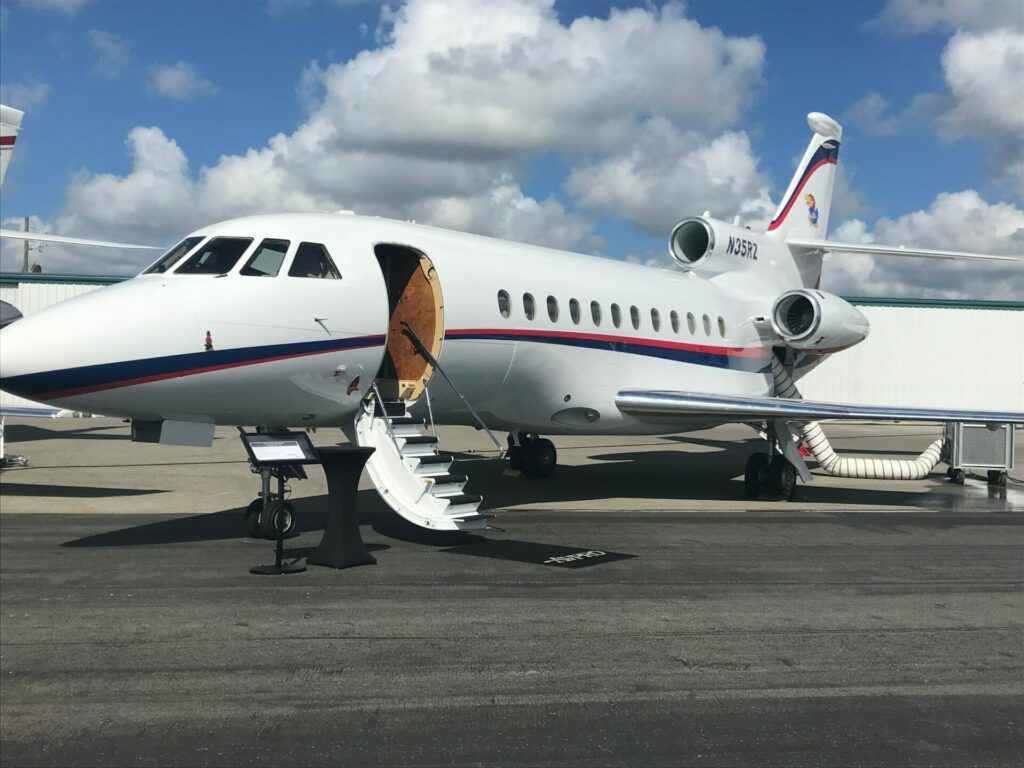The use of private jets is booming, according to a survey by De Tijd. Although the travel sector came to a halt during the pandemic, the market for private jets was the first to come out of the pandemic-induced slump, with certain people opting to fly privately to avoid Covid-19.
Flying Group, a travel operator, saw the number of private flight hours increase by 15% in 2021 compared to 2019, with the group expecting that number to grow by 7-8% more, particularly given the travel chaos seen in many European airports this summer.
Private services are, unsurprisingly, not cheap. At the Antwerp-based Flying Group, a private jet costs between €3,000 and €4,000 per hour. For a single flight to Ibiza with six people could cost €15,00, according to The Aviation Factory, a travel consultant in Antwerp.
Environmental impact
The transport sector is also responsible for roughly one quarter of all greenhouse gas emissions, according to the UN. In 2018, aviation accounted for roughly 12% of transport-related CO2 emissions.
Private jets are severely harmful for the planet, and remain a massive hindrance for global efforts to reduce greenhouse gas emissions. Although the amount of fuel and CO2 emitted is lower than on a commercial jet because it is smaller, there are fewer people on board. The carbon footprint of these passengers will therefore be far higher.
According to the US Energy Information Administration, jet fuel produces 9.57kg of CO2 per gallon burnt. A popular commercial jet, such as Boeing 737, will produce some 3400 litre of fuel per hour. One a three-hour flight, it will burn 10228.7 litres of C02. If a plane holds around 200 passenger, the amount of C02 per passenger is around 108 kg in a full flight.
By contrast, the amount for private jets is much higher. A Cessna Citation XLS is a popular airplane in the private market. It burns almost 100o litres of fuel per hour, producing 6,030 kg of C02 in a three-hour flight. If a jet has between six and eight passengers onboard, the average amount of C02 emissions per person would be 860kg.
Related News
- 'Historic decision': EU to end sale of polluting cars from 2035
- G7 launches a 'climate club' to tackle environmental crisis
- Climate march planned for 23 October in Brussels ahead of COP27
There are attempts by some private jet companies to offset passengers' C02 emissions by buying green 'credits' from projects that remove greenhouse gas emissions elsewhere, it is far from a blanket rule in the industry.
Business leaders are big fans of private jets
Leisure partly explains the boom, although business executives account for most of the extravagance. The Financial Times uncovered that the largest 500 American companies in 2021 spent $33.8 million on private flights for top executives. The spending amounts to a 35% increase from 2012.
An average of $170,660 was spent per top executive. The top spenders were Meta/Facebook Chief Executive, Mark Zuckerberg who spends $1.6 million dollars on private jets, and Lockheed Martin CEO, James Taiclet, with $1.1 million.

